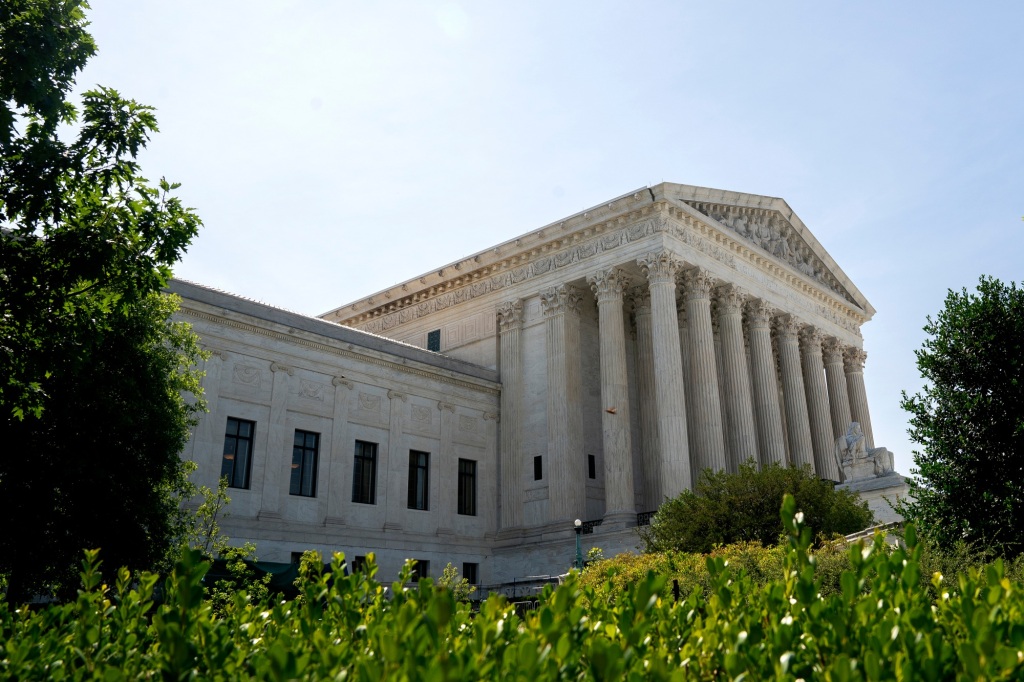
The United States Supreme Court’s decision striking down affirmative action in college admissions should put an end to race-based proposals in California that seek to direct public funding and other benefits exclusively to those who meet some sort of test that comes down to skin color.
The first proposal that should be withdrawn is Assembly Constitutional Amendment 7, authored by Assemblymember Corey Jackson, D-Perris. ACA 7 would allow state funding of programs that “research” has shown to be beneficial to “specific groups based on race, color, ethnicity, national origin, or marginalized genders, sexes, or sexual orientations.”
This is an unabashed attempt to circumvent the decision by California voters to reject discrimination or preferential treatment to “any individual or group on the basis of race, sex, color, ethnicity, or national origin in the operation of public employment, public education, or public contracting.”
That language was added to the state constitution by Proposition 209, approved by 54.5% of California voters in 1996. Californians stood by this view even more strongly in 2020, with 57.2% rejecting Proposition 16, a measure that would have repealed Proposition 209.
The analysis of ACA 7 prepared for the Assembly Judiciary Committee explains that the proposal’s “split approach of permitting targeted funding, but maintaining limits on other types of decision-making, is deigned to be better appealing to the electorate while eliminating the worst impacts of Proposition 209.”
The Merriam-Webster dictionary defines “deign” as “to condescend reluctantly.”
The Judiciary Committee was advised that as a result of the imminent Supreme Court decision in two cases—Students for Fair Admissions v. President and Fellows of Harvard College and Students for Fair Admissions v. University of North Carolina — “significant portions of this proposal may be deemed unconstitutional.”
It certainly appears that this has now happened.
“We have time and again forcefully rejected the notion that government actors may intentionally allocate preference to those ‘who may have little in common with one another but the color of their skin,’” Chief Justice John Roberts wrote in his opinion for the court. Roberts cited controlling precedents rejecting “the notion that societal discrimination constituted a compelling interest” sufficient to justify preferences based on race: “Such an interest presents ‘an amorphous concept of injury that may be ageless in its reach into the past,’” the chief justice wrote, quoting Justice Lewis Powell. “It cannot ‘justify a [racial] classification that imposes disadvantages upon persons . . . who bear no responsibility for whatever harm the beneficiaries of the [race-based] admissions program are thought to have suffered.’”
Along with sinking ACA 7, the Supreme Court may just have tanked the hopes of the California Reparations Task Force. The group’s massive report of more than 100 recommendations, including cash payments that could exceed $1 million to some individuals, has been delivered to the state Legislature, where it faces an uncertain future. Lawmakers who are seeking an easy exit from the need to find funding for the report’s suggested compensation can point to the court’s ruling and say it’s out of their hands.
But the fact that Californians have rejected racial preferences both decisively and repeatedly should be enough to end the game of pandering to voters by promising unconstitutional programs that provide funding and benefits based on race.
Respect for democracy requires no less.

